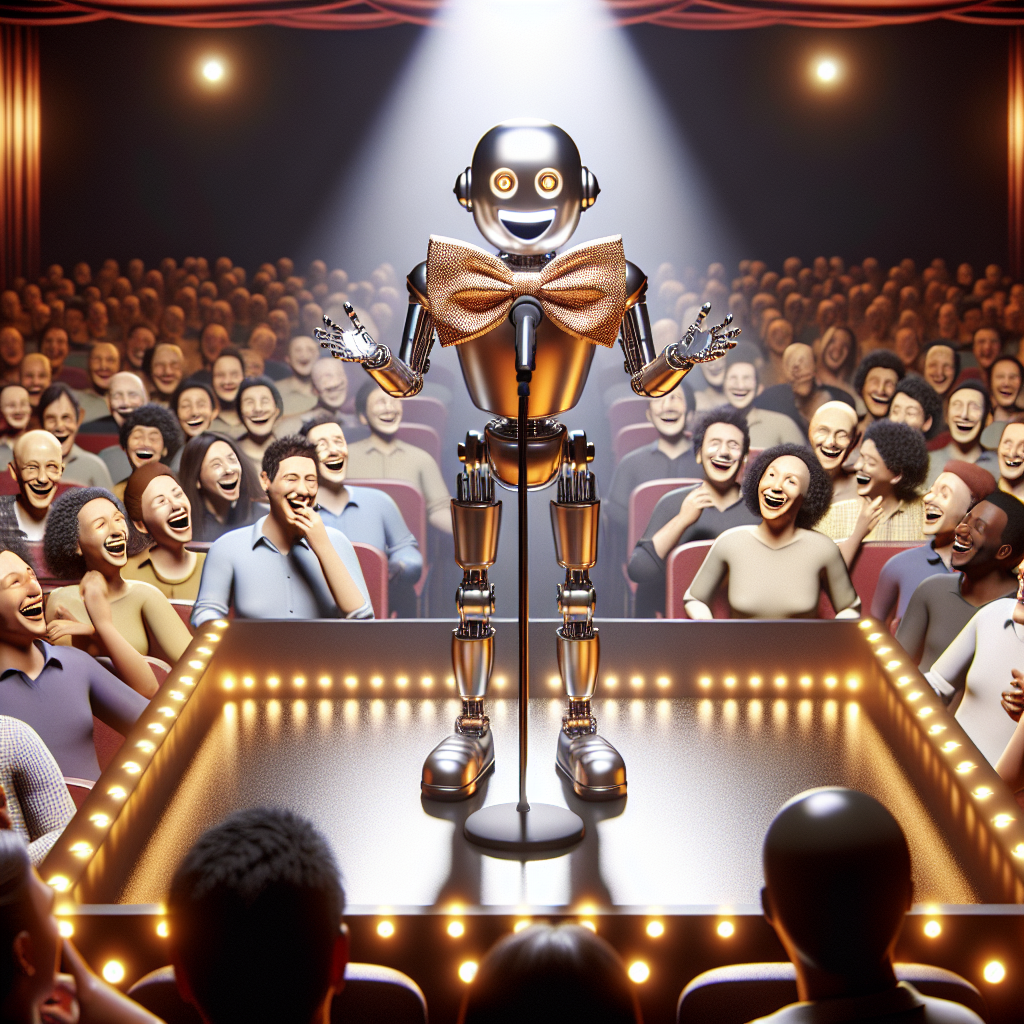AI and Improv Comedy: The Intersection of Technology and Spontaneity
Improvisational comedy, commonly known as improv, is a form of live theater where performers create scenes, characters, and dialogue on the spot without a script. It relies heavily on quick thinking, creativity, and collaboration among the performers to create humor and entertainment for the audience. Improv comedy has been a popular form of entertainment for decades, with famous troupes such as The Second City and Upright Citizens Brigade gaining widespread recognition.
In recent years, there has been a growing interest in the intersection of technology and improv comedy. Artificial intelligence (AI) has become increasingly sophisticated and capable of mimicking human behavior and interactions. This has led to the development of AI-powered improv tools and platforms that aim to enhance the creative process of improv comedy and provide new opportunities for performers and audiences alike.
One of the main ways AI is being used in improv comedy is through the creation of virtual improvisers. These are computer-generated characters that can interact with human performers in real-time during a live improv show. Virtual improvisers can be programmed to respond to cues from the human performers, create their own dialogue, and even generate their own physical movements and gestures. This adds an extra layer of spontaneity and unpredictability to the performance, as the human performers must react and adapt to the actions of the virtual improvisers in real-time.
Another way AI is being used in improv comedy is through the development of AI-powered suggestion generators. In improv comedy, audience suggestions play a crucial role in shaping the scenes and characters that the performers create on stage. AI-powered suggestion generators can analyze the audience’s input in real-time and generate relevant and creative suggestions for the performers to use in their scenes. This can help streamline the creative process and provide performers with a wider range of ideas to work with, ultimately leading to more dynamic and engaging performances.
Additionally, AI is being used to analyze and improve the performances of improv comedians. By collecting and analyzing data on performers’ interactions, dialogue, and comedic timing, AI can provide valuable insights and feedback to help performers hone their skills and enhance their performances. This data-driven approach to improv comedy can help performers identify areas for improvement, experiment with new techniques, and ultimately become more confident and versatile on stage.
Despite the potential benefits of AI in improv comedy, there are also concerns and challenges that come with integrating technology into this traditionally spontaneous and collaborative art form. One of the main concerns is the risk of relying too heavily on AI and losing the human element of improv comedy. Improv is all about human connection, creativity, and spontaneity, and there is a fear that AI could overshadow or replace the unique energy and chemistry that human performers bring to the stage.
Another concern is the potential for AI to perpetuate biases and stereotypes in improv comedy. AI algorithms are trained on vast amounts of data, including language and cultural norms, which can inadvertently reinforce harmful stereotypes or discriminatory behavior. It is important for developers and performers to be mindful of these risks and take steps to mitigate them, such as incorporating diverse perspectives and voices in the development and implementation of AI-powered improv tools.
Despite these challenges, the intersection of AI and improv comedy has the potential to revolutionize the art form and create new opportunities for performers and audiences alike. By harnessing the power of technology to enhance creativity, collaboration, and spontaneity, improv comedy can continue to evolve and thrive in the digital age.
FAQs
Q: Can AI really replicate the spontaneity and creativity of human performers in improv comedy?
A: While AI has made significant advancements in mimicking human behavior and interactions, there is still a long way to go in replicating the nuanced creativity and spontaneity of human performers in improv comedy. AI-powered tools and platforms can enhance the creative process and provide new opportunities for performers, but ultimately, the human element of improv comedy is irreplaceable.
Q: How can performers and audiences benefit from AI-powered improv tools and platforms?
A: AI-powered tools and platforms can help streamline the creative process, provide new opportunities for collaboration, and enhance the overall quality of performances. Performers can use AI to generate creative suggestions, analyze their performances, and experiment with new techniques. Audiences can enjoy more dynamic and engaging performances that push the boundaries of traditional improv comedy.
Q: What are some ethical considerations when using AI in improv comedy?
A: There are several ethical considerations to keep in mind when using AI in improv comedy, including the risk of perpetuating biases and stereotypes, the potential for AI to overshadow the human element of improv, and the importance of transparency and accountability in the development and implementation of AI-powered tools and platforms. It is essential for developers and performers to be conscious of these issues and take steps to address them responsibly.

